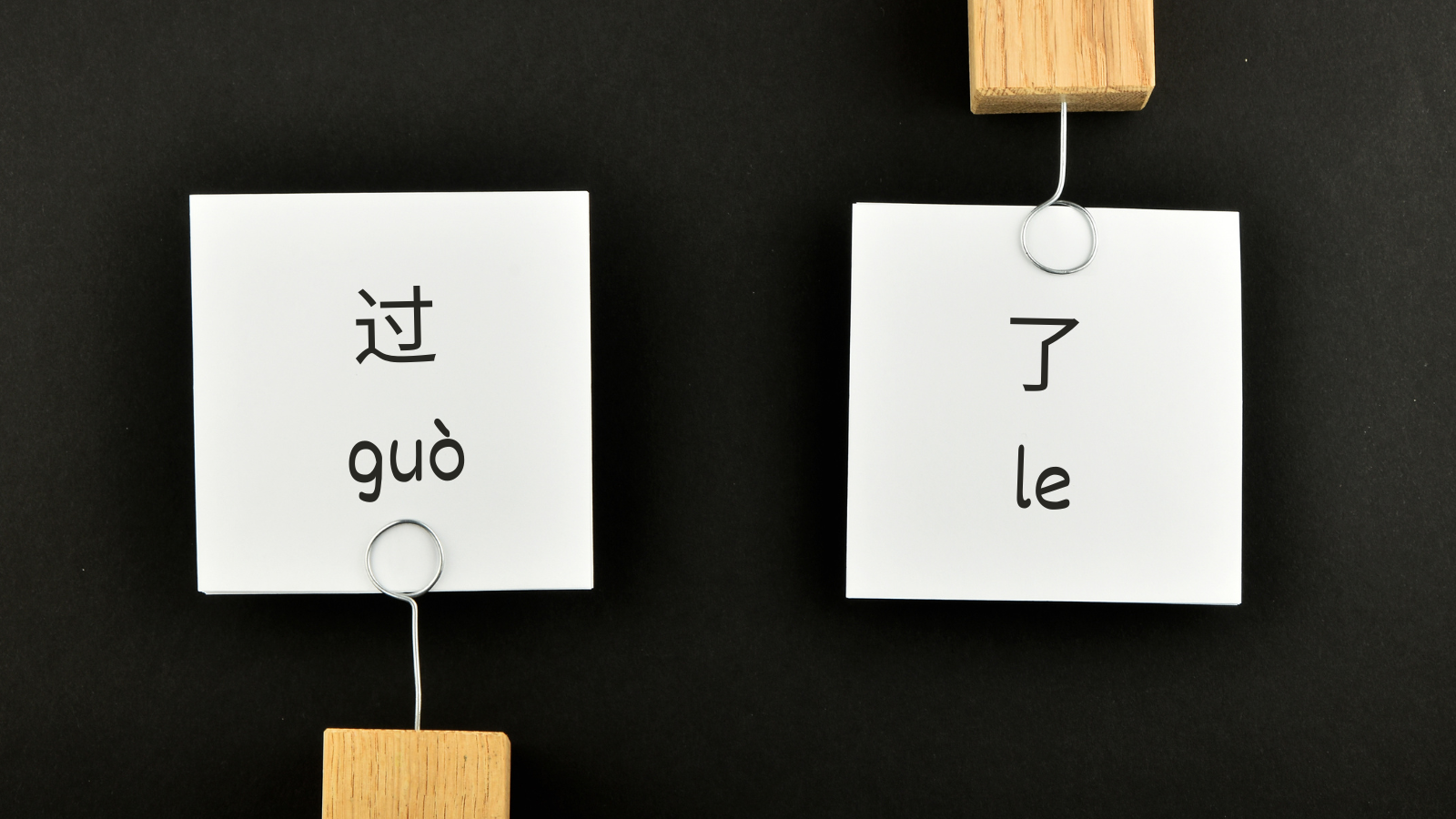What's the difference? 过 (guò) vs 了 (le)

Introduction
Ready to level up your Chinese language skills? With this post, you will say goodbye to the basics and become an expert on using 过 (guò) and 了 (le)!
Let's start our journey to mastering these conversational building blocks that make all of us who speak Mandarin sound smoother than ever. Get ready for your conversations in Chinese to reach new heights!
Similarities and Differences - 过 (guò) and 了 (le)
Both 过 (guò) and 了 (le) are particles used in Chinese grammar to indicate an action that has been completed.
- 过 (guò) is often used to express experience or indicate that an action has been completed at least once in the past.
- It can be translated as "have ever done" or "experienced."
- 了 (le) indicates an action has been completed or a change has occurred.
- It is often translated as "completed" or "finished."
In short, 过 (guò) indicates experience, while 了 (le) indicates completion or change.
Examples - 过 (guò) and 了 (le)
- 我看过电影。 (Wǒ kàn guò diàn yǐng。) - I have watched movies before. (I have had the experience of watching movies before.)
- 我看电影了。 (Wǒ kàn diàn yǐng le。) - I watched movies. (I have completed the action of watching movies.)
- 他去过中国。 (Tā qù guò Zhōngguó。) - He has been to China before. (He has had the experience of going to China before. Now he is not in China.)
- 他去中国了。 (Tā qù Zhōngguó le。) - He went to China. (Now he may still be in China. His situation is changed from “not in China” to “in China”.)
Summary
过 (guò) indicates the experience or completion of an action in the past. In contrast, 了 (le) indicates completion or a change in a situation. While both particles are commonly used, their specific meanings and uses must be understood to use them correctly in Chinese grammar.
Hopefully, this article has provided you with a good understanding of how to use the Chinese particles 过 (guò) and 了 (le). Whether you're a beginner or an advanced learner, these two words will be essential tools as you master spoken and written Chinese. With enough practice and determination, you'll be able to incorporate them into your language skills like a native speaker!
Engaging Practice Drills to Enhance Your Understanding
Translate the following sentences into Chinese using 过 (guò) or 了 (le):
1.
He has already eaten.
2.
Xiao Hong has been to Shanghai before.
3.
He closed the door and left.
4.
Have you ever tried hotpot?
Exercise Solutions Unveiled & Explored
1.
他已经吃饭了。
Tā yǐ jīng chī fàn le。
He has already eaten.
He’s completed the action of eating.
2.
小红以前去过上海。
Xiǎo hóng yǐ qián qù guò Shàng hǎi。
Xiao hong has been to Shanghai before.
Xiao hong has had the experience of going to Shanghai before. Now she is not in Shanghai.
3.
他关上门,然后走了。
Tā guān shang mén, rán hòu zǒu le。
He closed the door and left.
He's completed the action of leaving.
4.
你吃过火锅吗?
Nǐ chī guò huǒ guō ma?
Have you ever tried hotpot?
Do you have had the experience of trying hotpot before?
Let's get in touch
Sign up to get our newsletter with Chinese learning resources. Also, get updates about future courses and deals!
Thank you for subscribing!
Have a great day!